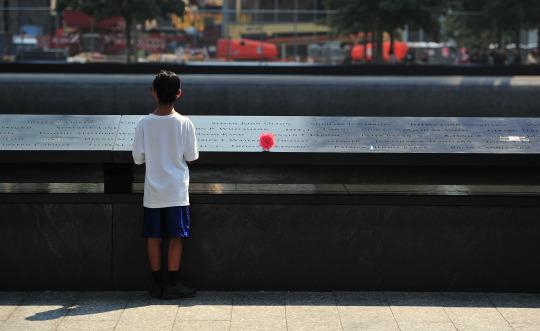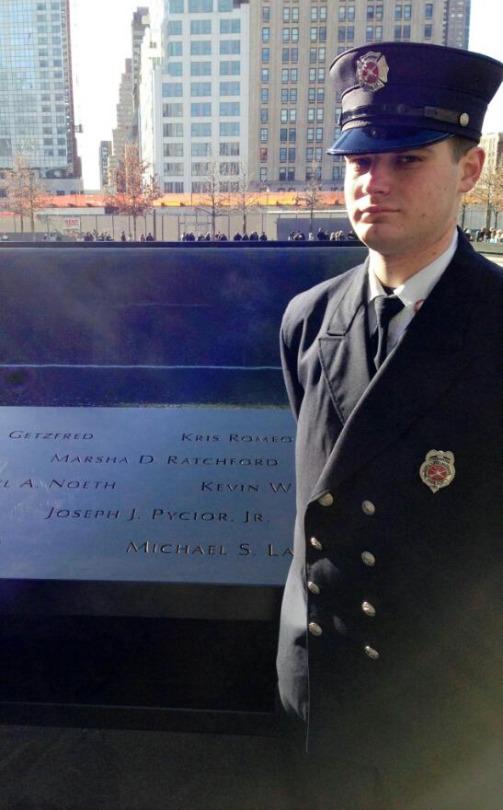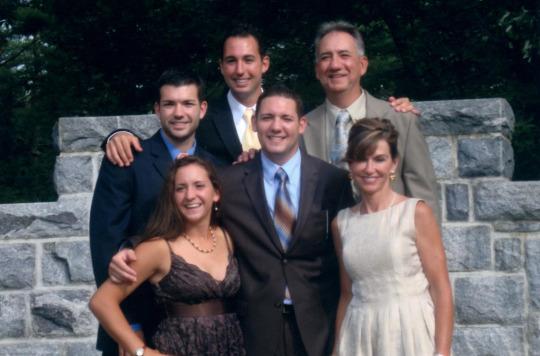
For the more than 3,000 children who lost parents on 9/11, the events of that day will forever impact their lives. But now that 14 years have passed, many of those kids have matured into adults who are trying to map their own course in the world, and are striving to become more than their “9/11 kid”
label. “We do a lot of work with young people in order to not have 9/11 define or limit them, but to provide a platform for growth and a vision for their future,” Terry Sears, executive director of Tuesday’s Children, an organization founded to promote the healing of those directly affected by the attacks, tells The reporter “What we do is try to make leaders out of them.”
The average age of the 3,051 children whose parents were killed on 9/11 was 8 years old, which means “the core constituency of kids are in college, or have just graduated and are launching their careers,” Sears says. “We focus a lot on our career resource center, so these young people are not limited in any way by how they’ve been defined in public.”
STORY: Late Dad Makes Stunning Appearance in Photo With Widow, Baby
But while that “9/11 kid” label can be limiting, it can also be motivating, says Robbie Pycior, 22, a firefighter who is currently getting a master’s degree in social work. His father, a Navy officer, was killed while stationed at the Pentagon 14 years ago. “It’s a balancing act,”he says “Being a 9/11 family member, I have an experience that is invaluable to the work that I do. But on the flip side, if my friend introduces me to someone, do I want them to say ‘This is Robbie, his dad was killed in a terrorist attack’? No, that’s not who I want to be.”

As he’s been able to get more distance from that day, Pycior says he’s become better equipped to cope with his own grief, and in turn has been inspired to give back to others who may be suffering similar trauma. “I didn’t deal with my loss for several years. We went to family counseling, I would be cordial to the counselor, but then I would take my chair, put it in a corner and stare at the wall,” he says. “As I got older, I decided to get involved in helping others. I am a big proponent of helping others to help yourself, so over the years it’s become about turning this loss from a negative to a positive.” Pycior says he hopes to pursue a career in the military or with first responders dealing with critical incidents or stress management. He also works with the Tuesday’s Children program Project Common Bond, which brings together teens from around the world who have lost a family member from terrorism.
STORY: Cops Step in to Escort 8-Year-Old to Father-Daughter Dance
For Joey Graziano, 31, the memory of those lost on 9/11 is a daily inspiration. His father, Joe Sr., was the sole survivor of FDNY Engine 22 Ladder 13. “He was in the North Tower, and he left the building before the rest of his firehouse because he was carrying out an elderly man who had a heart attack. As my father left, the building behind him fell,” Graziano tells Yahoo Parenti. “He was, to my knowledge, the last person to leave any Twin Tower alive, but he suffered severe injuries to his neck and back and lungs as a result. He hasn’t worked as a firefighter since.”

Graziano is the oldest of four kids, and was a senior in high school the day of the attacks. The night before, on September 10, he got into the only real fight he’s ever had with his father, he says. It was about a college baseball recruiter —Graziano’s dad wanted him to let the coach know he wasn’t interested in playing at his school, but Graziano didn’t want to make the call just yet. “I screamed at him about how he didn’t go to college, he couldn’t understand, and then I said, ‘I f**ing hate you,’” Graziano says. “Here’s this father of four, there is nothing he didn’t do for his kids, and that’s the last thing I said to him on September 10.”
Every day, Graziano says, he thinks about that conversation, and the fact that he was lucky enough to have the chance to apologize to his father. “I know that somewhere there is a kid who was 17 years old on 9/11, who said the same thing because that’s what stupid 17-year-old boys do, and his dad didn’t come home and mine did,” he says. “Because of that luck, I feel like I have a responsibility to get the best out of myself and out of others.”
And Graziano has certainly lived up to that responsibility. With financial help from theFamilies of Freedom Scholarship Fund, which provides financial assistance to dependents of those killed or injured in the 9/11 attacks, he received a bachelor’s and law degree from Georgetown University, was a Rhodes Scholar finalist, and is currently general counsel and director of talent at the Headfirst Camps, the largest provider of summer camps for kids ages 3 to 12. His two brothers are a doctor and an EMT with the New York City fire department, and his younger sister is pursuing a career as a physician’s assistant. “My father thinks his kids are a great accomplishment. For a guy who barely graduated high school, he sent four kids to great colleges — that was his dream. But for me, there is nothing I could accomplish that would mean more to me than being the son of a New York City firefighter,” Graziano says. “I think about my dad and those men who died in 9/11 and the responsibility I have to that 17-year-old kid who didn’t get to tell his father he’s sorry, and I’ll be damned if I don’t do everything I can to make the most out of the opportunities I’ve been given.”
Both of these men, just kids when the 9/11 terrorist attacks occurred, have transformed themselves from victims to heroes, ensuring that the events of 14 years ago continue to propel them to greatness. “It’s not that 9/11 is an exclusive tragedy, plenty of people have been through horrible things,” Graziano says. “But it’s the one I think about every day when I wake up, especially if I’m tired or I don’t want to work hard or I don’t want to do that something extra that day. It’s what I think about when I am trying to be driven to change lives.”
No comments:
Post a Comment